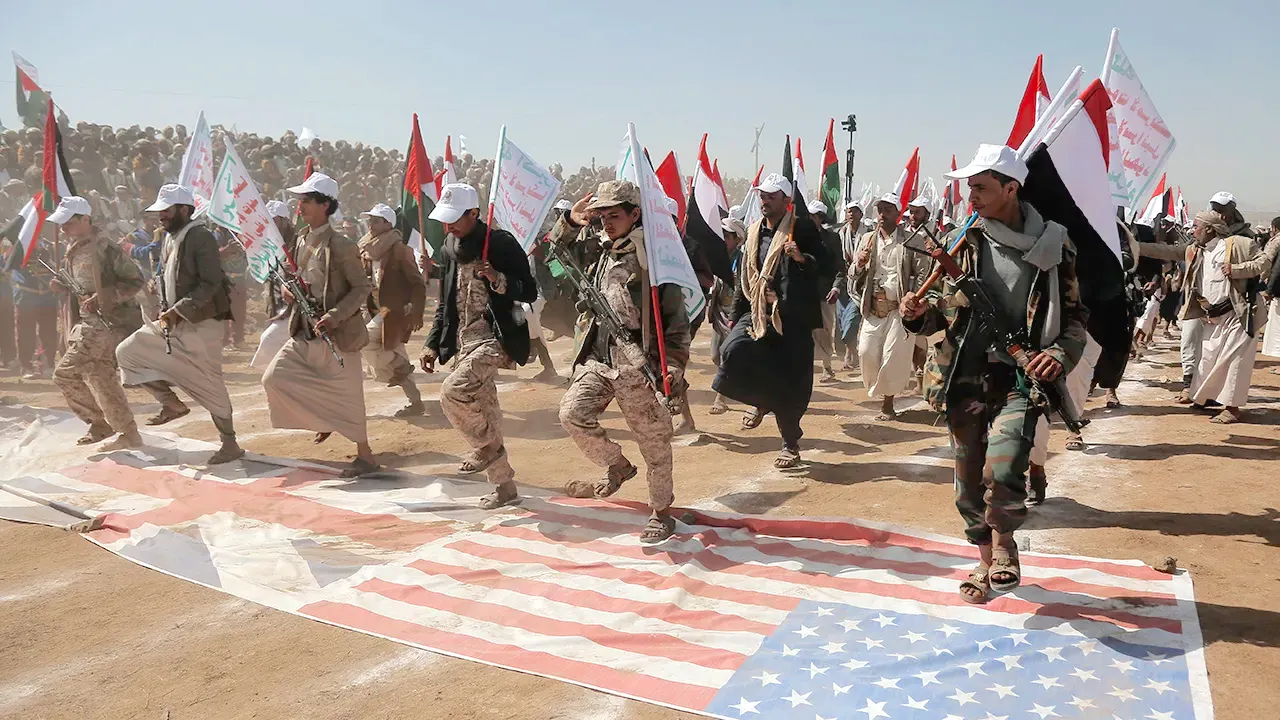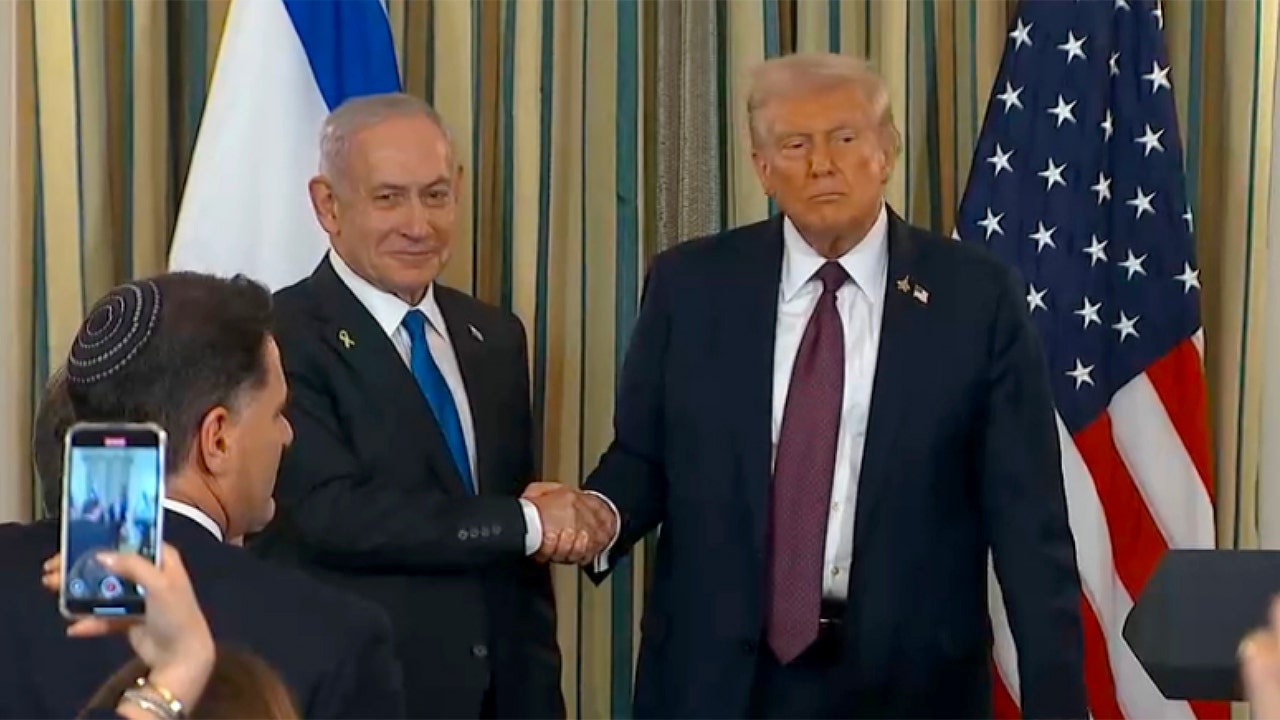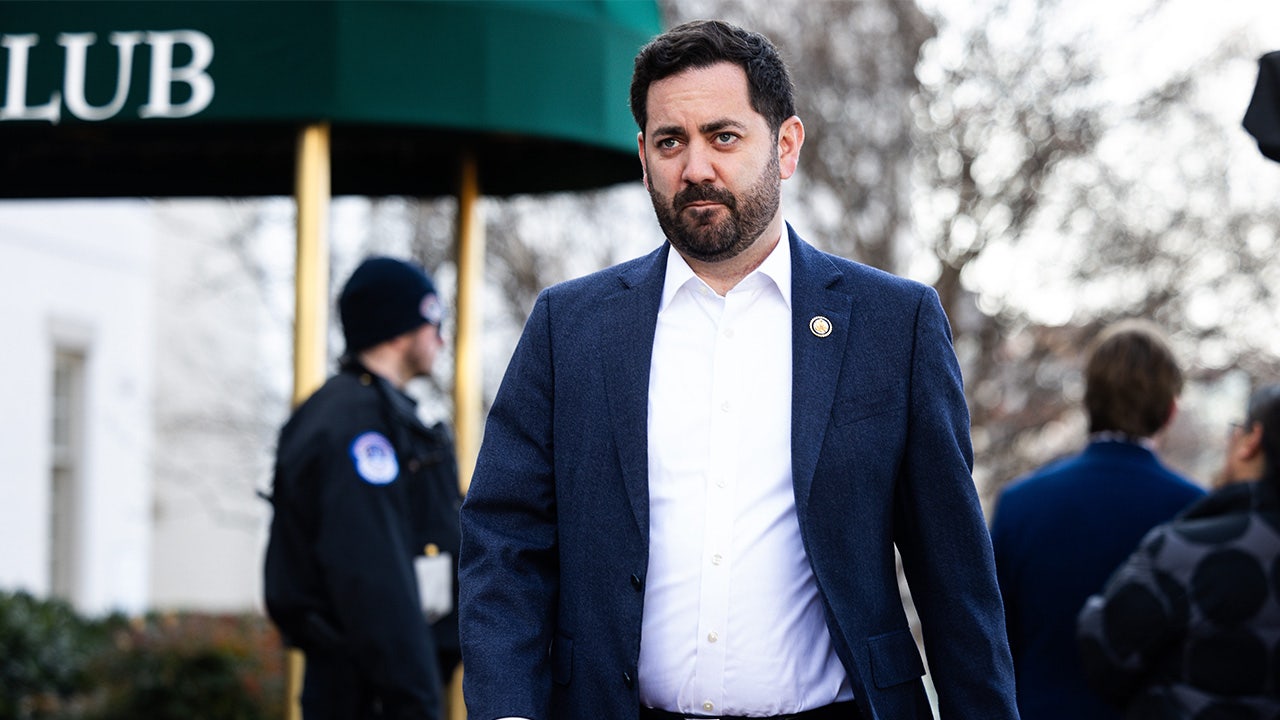NEWYou can now listen to articles!
As President Donald Trump moves to finalize his 20-point plan to end the Gaza war, Israel faces a pivotal decision that could reshape the conflict’s aftermath. The framework envisions a phased Israeli withdrawal from Gaza, the return of all hostages, and a major prisoner exchange. In return, Hamas would commit to disarmament and allow a technocratic transitional authority to manage Gaza’s reconstruction.
Part of the agreement involves releasing hundreds of convicted Palestinian terrorists, a clause that has already triggered backlash from the families of victims.
Dr. Michael Milshtein, head of the Moshe Dayan Forum at Tel Aviv University and one of Israel’s foremost experts on Hamas, told Digital that the list of roughly 250 prisoners contains names that represent what he called “a real strategic danger.”
TRUMP UNVEILS 20-POINT PLAN TO SECURE PEACE IN GAZA, INCLUDING GRANTING SOME HAMAS MEMBERS ‘AMNESTY
Palestinian Hamas terrorists stand guard on the day of the handover of hostages held in Gaza since the deadly Oct. 7, 2023 attack, as part of a ceasefire and a hostages-prisoners swap deal between Hamas and Israel, in Rafah in the southern Gaza Strip, Feb. 22, 2025. (Reuters/Hatem Khaled/File Photo)
“These are not low-level activists,” Milshtein said. “Among them are people who built power and influence inside prison. When released, they will return as leaders.”
He cited several examples that, he said, demonstrate the risk of past exchanges. Among the prisoners now under discussion are Abbas al-Sayed, convicted for the 2002 Park Hotel bombing in Netanya that killed 30 people; Ibrahim Hamed, former Hamas military commander in the West Bank, serving more than 40 life sentences; Abdullah Barghouti, who produced explosives for a series of large-scale suicide bombings and Hassan Salameh, convicted for orchestrating multiple bus attacks in the 1990s.
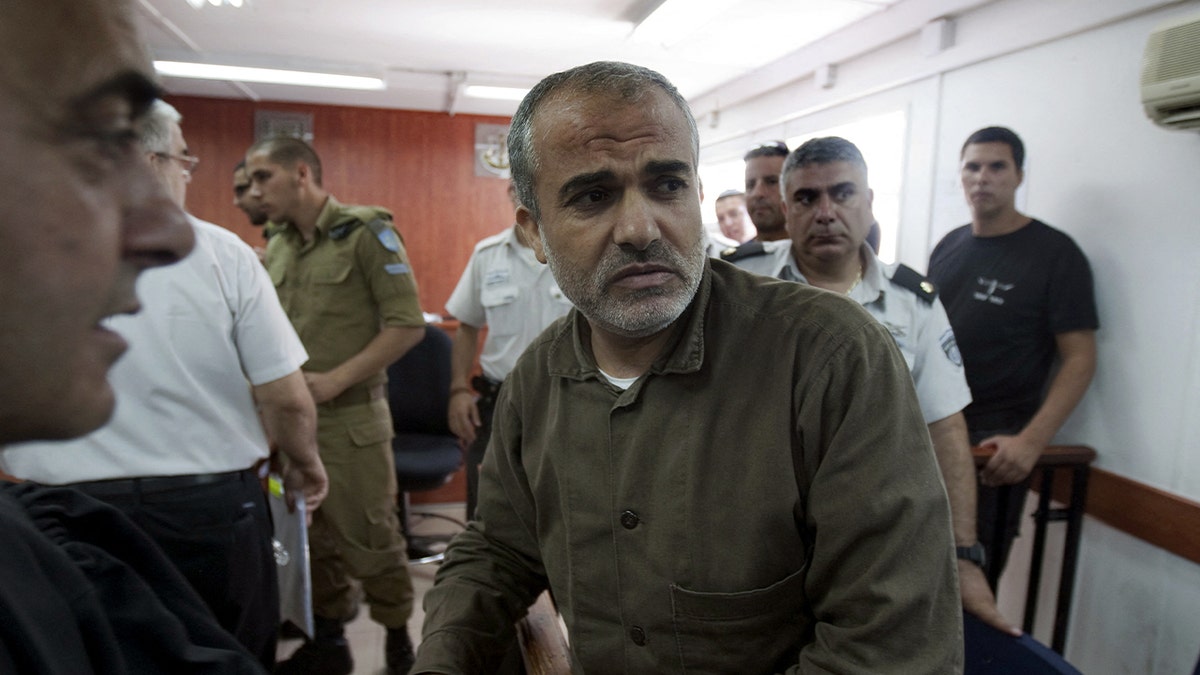
Ibrahim Hamed, a former head of the Hamas terrorist movement in the West Bank, looks on as he arrives for sentencing at the Ofer military court near Ramallah, West Bank, on July 1, 2012. The Israeli military court sentenced Hamed to 54 life terms after convicting him of ordering attacks that killed dozens of Israelis, the army said.
“These are people with dozens of life sentences,” Milshtein explained. “We’ve already seen what happens when such figures are freed. Many of those who carried out the Oct. 7 massacre were prisoners released in the 2011 Gilad Shalit deal.”
ISRAELI VICTIMS OF TERROR CONCERNED WITH MURDERERS’ RELEASE FROM PRISON, RELIEVED 7 HOSTAGES BACK HOME
Milshtein noted that several recently released prisoners have quickly rejoined Hamas’s leadership abroad. He pointed to Abdel Nasser Issa, a Hamas operative convicted in 1995 who was released earlier this year and soon relocated to Turkey, where he began appearing in podcasts as part of the group’s senior political echelon. “That is the model,” Milshtein said. “They enter prison as operatives and emerge as decision-makers.”
Among the most concerning names, he added, is Jamal Al-Hur, who he described as “one of the five most dangerous.” Al-Hur, deeply connected to Hamas’s hierarchy, has served nearly three decades in prison and now acts as a key liaison between jailed operatives and the group’s external leadership. “He didn’t enter as a leader but became one inside,” Milshtein said. “If released, he will re-establish himself quickly—just as others did before him.”
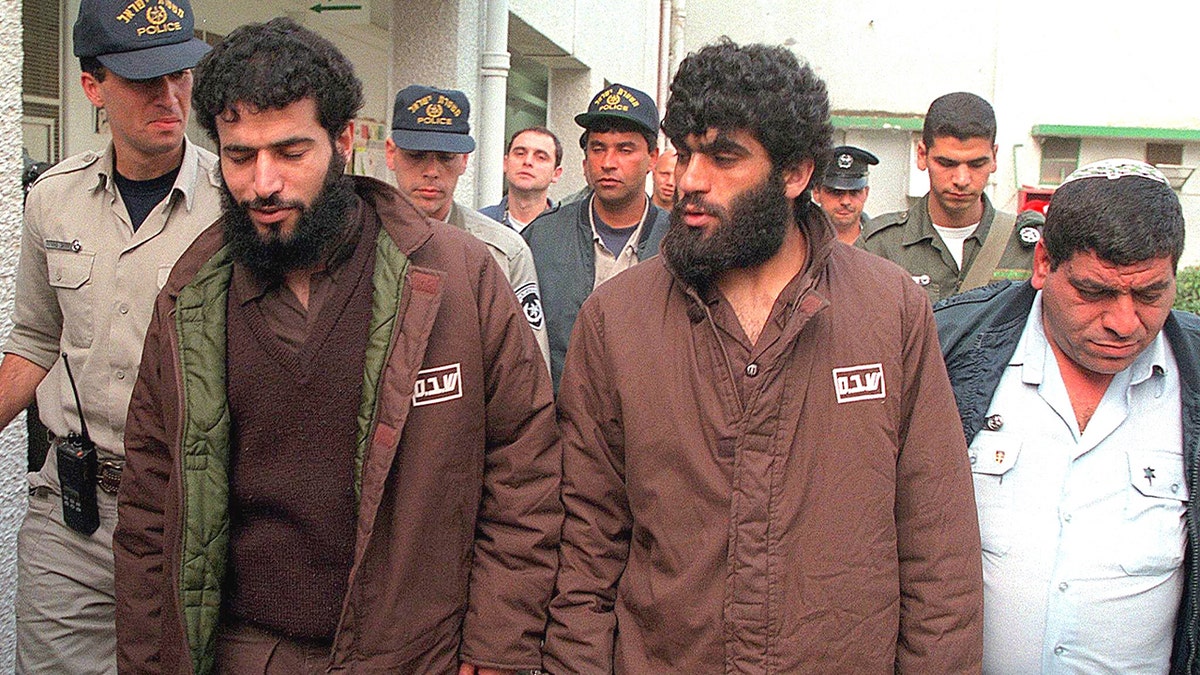
Jamal al-Hur, left, and Rahman Ismael Ranimat, right, are led into an Israeli military court in Lod, Israel, on Feb. 5, 1998. An Israeli military tribunal charged the two with multiple counts of murder in the slayings of 13 Israelis in a series of Hamas attacks. (Danni Salomon/Yedioth/AFP via Getty Images)
The Edri family’s warning
The inclusion of Al-Hur on the draft list has renewed anguish for the family of Sharon Edri, the Israeli soldier he helped kidnap, torture, and murder in 1996. Al-Hur was also convicted for the 1997 Apropo Café bombing in Tel Aviv that killed 13 civilians. Twice before, his name appeared on proposed release lists and was removed after public pressure.
“I know what it’s like not to know where your brother is for seven months,” said Danielle Edry Karten, Edri’s sister, who lives in New York. “There’s nothing that makes me happier than knowing families will soon be reunited with the hostages. But this man shouldn’t be released—not because of my brother alone, but because of the danger he still poses.”
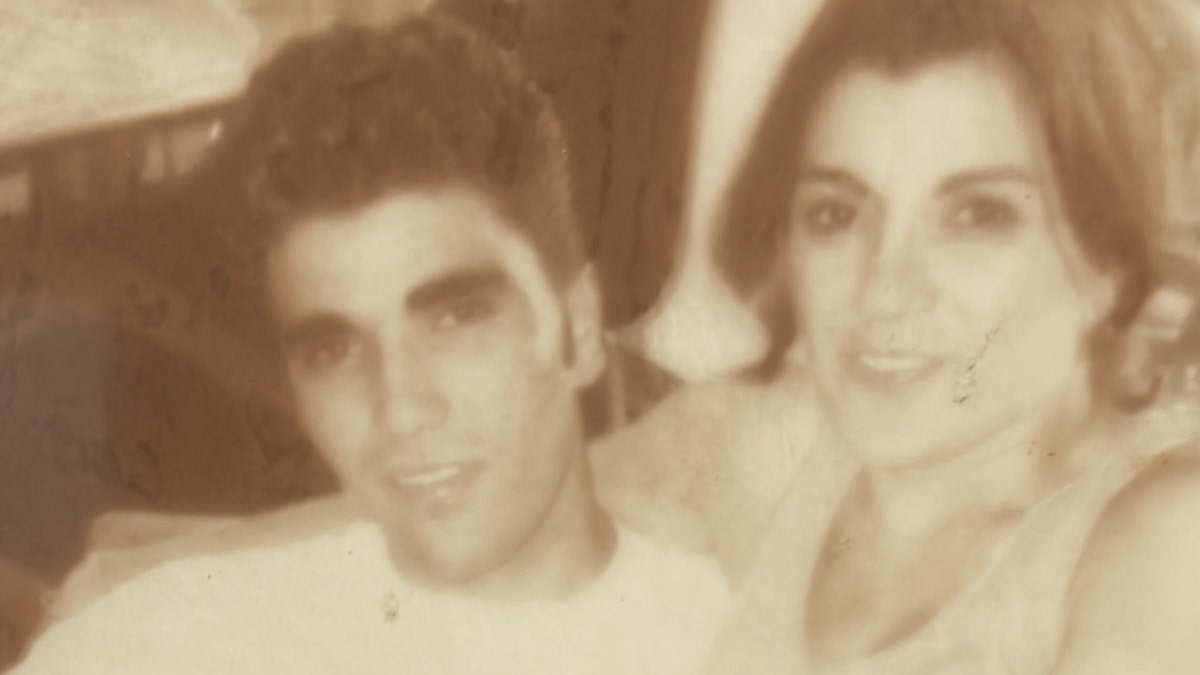
Sharon Edri is seen here with his sister, Danielle Edri Karten. Edri Karten opposes the release of her brother’s killer.
“He kidnapped, mutilated, tortured my uncle,” said Izzy Karten, Edri’s nephew, in an interview with Digital from New York. “He went to jail, was released, and went on to commit the Apropo Café bombing. Later, he helped organize the kidnapping of the three boys that started the 2014 war. Now he’s a senior Hamas leader inside prison—that’s why we call him the next Sinwar.”
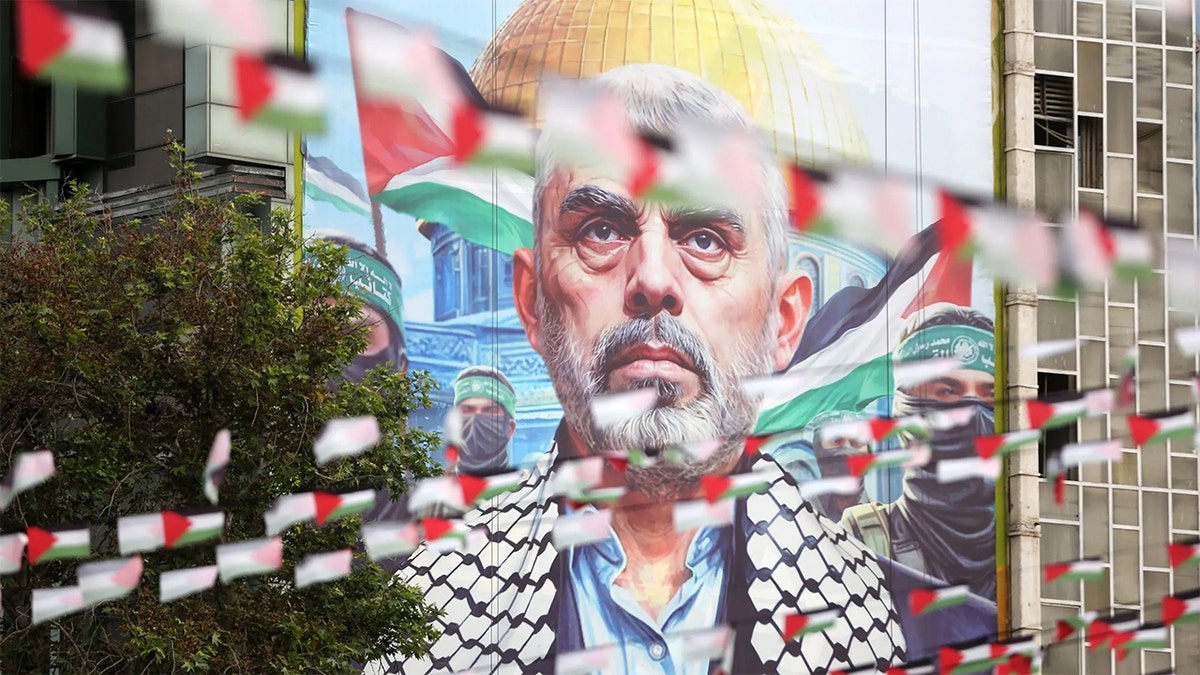
Banners with the photograph of Yahya Sinwar, the Hamas terrorist leader who was killed in an Israeli attack, are hung on the streets in Tehran, Iran on Oct. 19, 2024. (Fatemeh Bahrami/Anadolu via Getty Images)
Karten added: “We’re not against the peace deal. We’re praying for the hostages to come home. We just need to make sure they don’t trade them for the worst of the worst.”
ISRAEL’S ARMY WILL ‘ADVANCE READINESS’ FOR FIRST PHASE OF TRUMP PLAN TO RELEASE HOSTAGES
The family launched a new petition this week calling on the Israeli government to block Al-Hur’s release and to bar any future swaps involving convicted murderers.
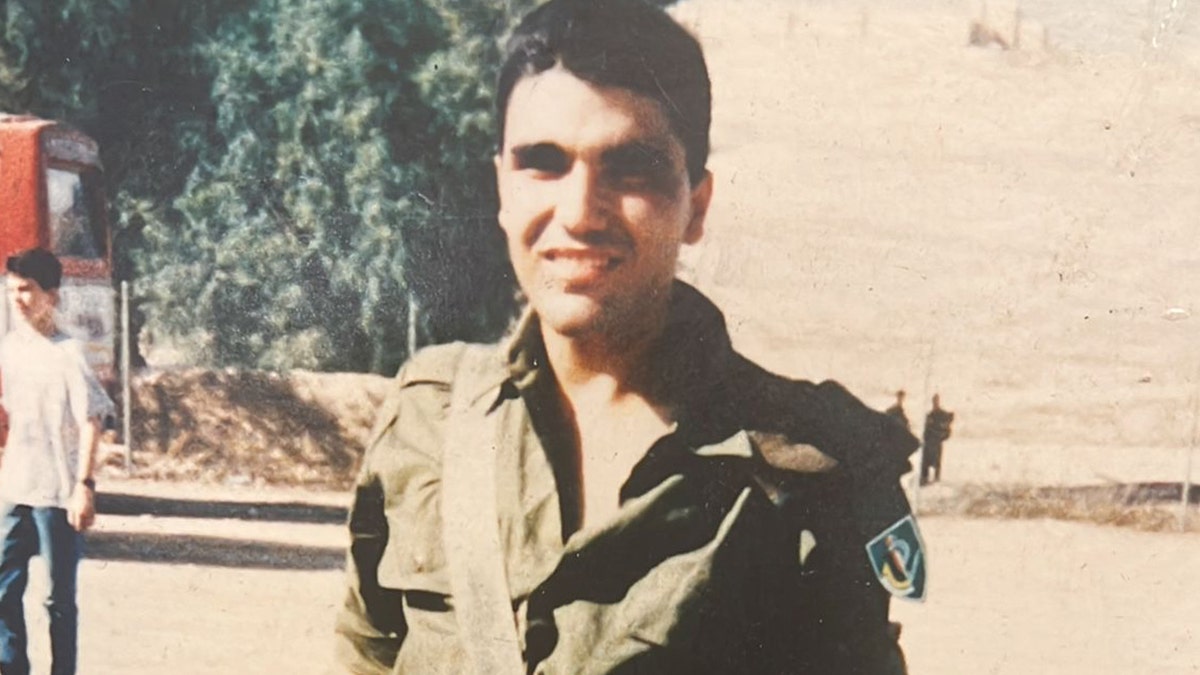
Sharon Edri, an Israeli soldier abducted and killed by Hamas terrorist Jamal al-Hor in 1996, is shown in a family photo provided by the Edri family, who oppose the planned release of his killer as part of a potential prisoner exchange. (Edri Family)
At Sharon Edri’s funeral nearly three decades ago, Netanyahu vowed to the family, “We are telling the killers—you won’t break the people and the family. We will not forget him and your daughter Hana. We will end the terror and will bring peace.” The family now fears that the promise may be undone.
The Nukhba dilemma
Beyond the list of notorious prisoners, another issue threatens to derail the negotiations: Hamas’s demand to release about 90 members of its elite “Nukhba” force, the commandos who spearheaded the most horrific atrocities on the Oct. 7 attack on Israeli communities.
Milshtein, who visited the section of Ramla Prison where some of these terrorists are held, said they remain unrepentant. “I spoke with them,” he told Digital. “They are fanatical—completely committed. They show no remorse. The only thing they regret is not having killed more people.”
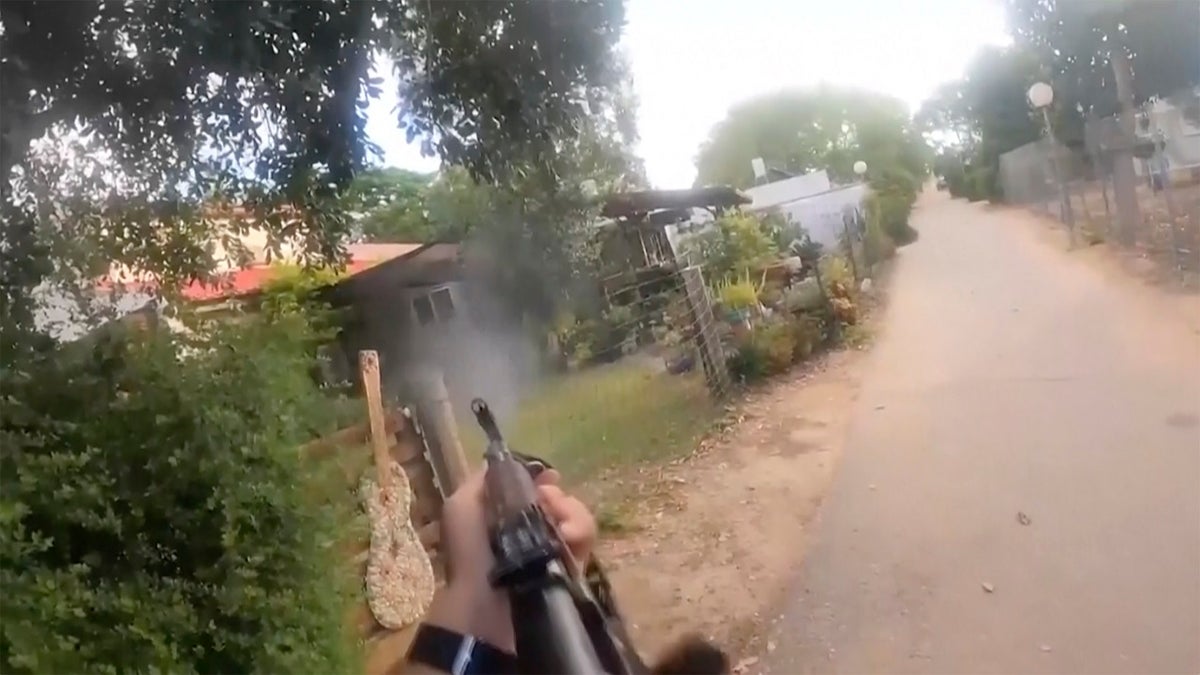
Hamas terrorists killed civilians, including women, children and the elderly, when they attacked Israel on Oct. 7, 2023. (Israel Defense Forces via AP)
He described the Nukhba detainees as the most ideologically extreme and operationally capable among Hamas’ ranks. “They are like a special-forces division with a radical worldview,” he said. “Releasing them would be like setting loose the people who planned and executed the worst day in Israel’s history.”
CLICK HERE TO GET THE APP
Despite the risks, Milshtein acknowledged that Israel may have no alternative. “It’s a terrible dilemma,” he said. “But strategically, this may be one of those bitter compromises Israel will have to make to bring its citizens home.”
